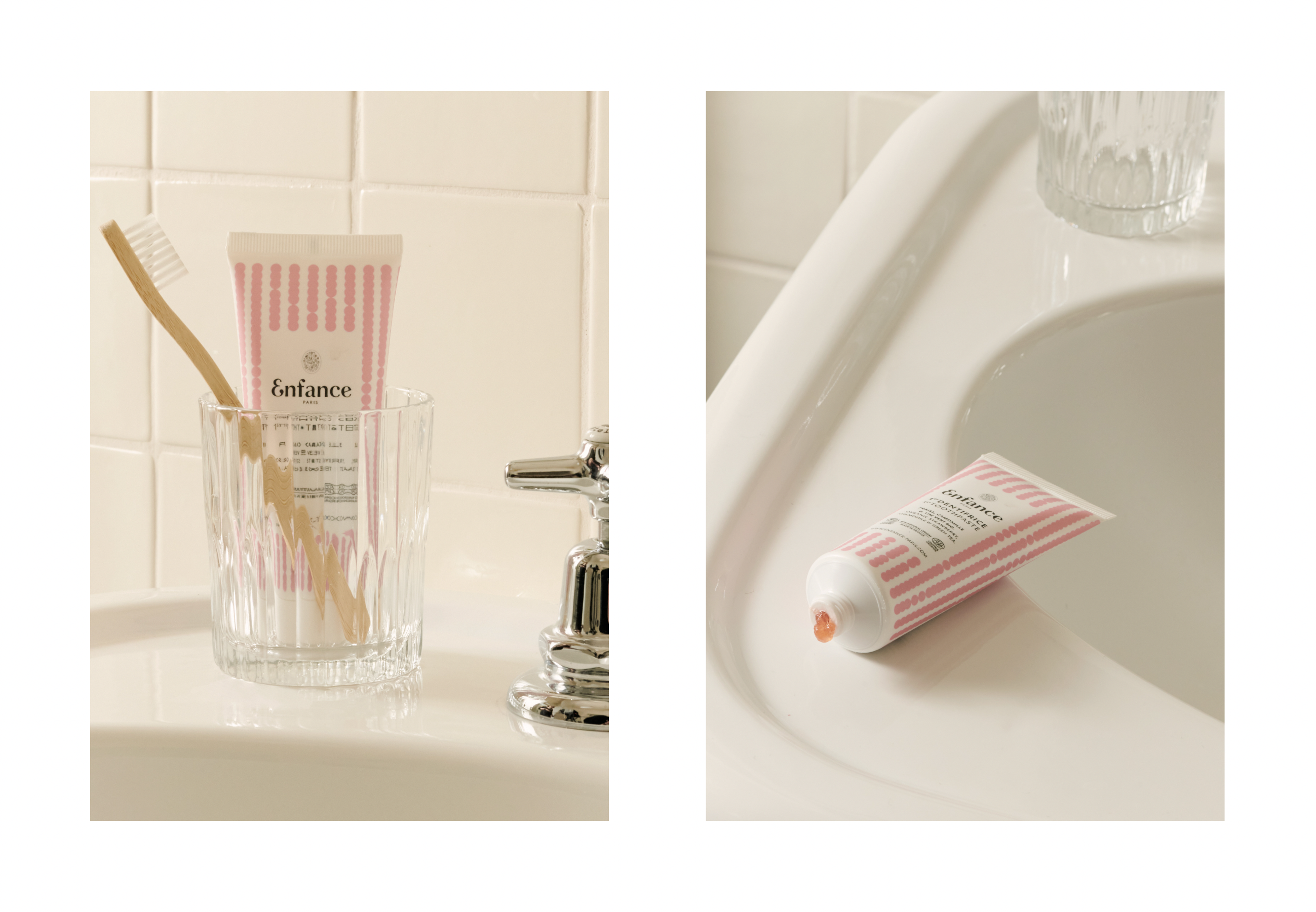Expert advice : a dentist
04. 11. 2022
There are so many questions about children’s teeth. To help you as much as possible, we approached Doctor Emmanuelle Kulig, a dentist in Uzès who has been practicing since 1996 and who is a mother of two children. She has kindly agreed to share her knowledge with us and to answer the questions we regularly ask ourselves as parents.

Good evening Dr Kulig, could you explain to us the differences between the milk teeth and the final teeth?
Milk teeth are thinner, have less enamel and are much less mineralized. Therefore, they are more fragile than an adult's teeth. The risk of caries or breakage is much greater. This dental immaturity makes them more vulnerable to infections and abscesses. To keep milk teeth healthy, there are two factors to consider: the natural quality of the enamel and oral hygiene.
Could you explain how cavities form?
We all have bacteria in our mouths, in our saliva, which is perfectly normal. If you do not brush your teeth, a deposit forms and the bacteria will feed on it. The process of digestion of bacteria creates an acid production that will degrade the enamel. This degradation leads to demineralization, which is materialized by the appearance of white spots that evolve into brown spots that correspond to the softening of the tooth and it is at this moment that caries are formed.
What are your best tips for avoiding cavities?
Unfortunately, we are not all equal in the face of cavities: the quality of our enamel is linked to our genetic heritage. For this reason, good hygiene is essential to avoid cavities.
The next step is to avoid snacking, if a child wants to drink a sweet drink or eat a candy, it’s better to do it at the end of the meal, but if there are snacks throughout the day, we keep the salivary pH in acidity all day and we will really facilitate the work of bacteria and increase the risk of caries.
Although, the collective imagination regularly makes us believe that sweets are the caries best friends, but in fact we must not neglect any food. All foods are cariogenic from the moment the teeth are badly brushed. The whole point is to avoid food deposits.
To learn the right moves as soon as possible, get your children to brush their teeth even at an early age. As soon as there are teeth, brush after each meal. For babies, a light brush with water is enough. For children a little older, we use adapted toothpaste, and we wash our teeth two to three times a day depending on whether the latter eats in the canteen or not. However, for children with braces, washing teeth three times a day is essential.
Do you have a professional experience to you would like to share with us ?
A long time ago, I received a little girl of 8 years old. Her central incisor was already coming out and was longer than the others. After a fight with her brother, it was fractured, cut in half at the root! Was it necessary to remove everything? Considering the young age of the patient, I decided to keep the tooth and re-impress it after anesthesia of course. Eight weeks later, she comes back with the same broken tooth again. I repeated the operation. I followed this girl for several years, and this deeply traumatized tooth finished its growth and root building: it remained alive! Children’s teeth have incredible healing potential that I think one should never forget to take it into account. A more radical practitioner could have pulled out the final tooth at the age of 8 and imposed on this little girl beyond the disgraceful side of a hole, a much heavier protocol with either bridges, an implant she could not have made before her 18-20 years.
Thank you Dr. Kulig for taking the time to answer our questions.
